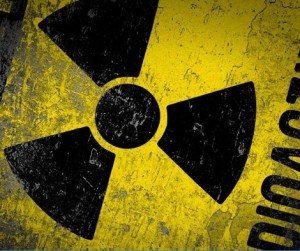Masao Yoshida have kept his illness hidden from the public for personal reasons. But because TEPCO plant workers along with people from rest of the world have made speculations as to what is wrong with his health Yoshida made the decision to step forward. Yoshida visited the Fukushima No. 1 plant Friday and talked about his illness with workers. He did not want speculation about his health to affect the morale of the TEPCO plant workers and their families.
The total amount of radiation Yoshida, 56, was exposed to since the nuclear crisis started in March was 70 millisieverts. It is unlikely his cancer is linked to the radioactive materials spewed by the plant's crippled reactors. Although no signs of esophageal cancer were found during Yoshida's regular checkup in autumn 2010.
Tepco noted that Makoto Akashi, executive director of the National Institute of Radiological Science, estimates that the incubation period of esophageal cancer is around five to 10 years.
Yoshihisa Matsumoto, an associate professor at Tokyo Institute of Technology's Research Laboratory for Nuclear Reactors, told The Japan Times he also believes the link between Yoshida's cancer and the nuclear disaster is highly improbable, given the amount of radiation he was exposed to and the short incubation period since the crisis started. Matsumoto said no deterministic effects from 70 millisieverts or less have been found.
Tepco said Yoshida does not wish to disclose further details about his illness, such as how bad the cancer is, where he is hospitalized and what treatment he is currently receiving. Yoshida worked in the Fukushima plant since June 2010. He left his post Nov. 14 on health grounds.
Now even if it's "improbable" that this type of cancer should show up all of a sudden, there is still the fact that Fukushima Daiichi Nuclear Power Plant have 3 full nuclear meltdowns with another 3 reactor units that have problems. Problems that are not known. They can't even seem to find the reactor cores anymore because they have eroded their ways down into the earth.
Is it really that far fetched that being close to the biggest nuclear disaster that have ever happened on this planet in it's whole history could have helped "speed up" or directly caused cancer in him.
And don't get me started on that journalist that died after he was camping and eating fish around Fukushima recently. Not to forget the TV host that ate Fukushima food and got cancer and well the list goes on..
☢ Radiation Deaths Fukushima Mayor and Journalist Die Both Exposed To Nuclear Fallout ☢
☢ Fukushima Radiation Sickness TEPCO Workers Tweets of Dead Horrible ☢
☢ Radiation Deaths Fukushima Mayor and Journalist Die Both Exposed To Nuclear Fallout ☢








No comments:
Post a Comment